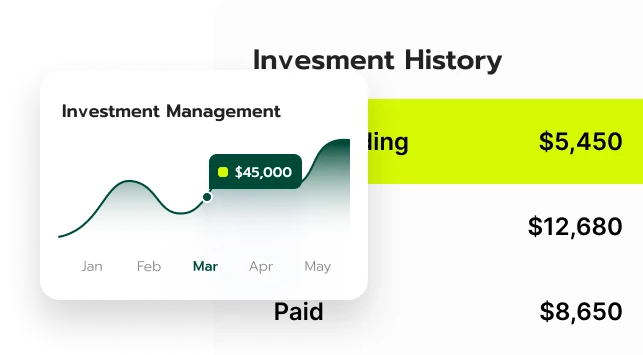Utilizing technology, Swap Adipex 0.9 makes it easy for users to register and connect with various investment education firms regardless of their geographical location. Once connected, these investment training companies provide the users with knowledge concerning their chosen investment or financial fields.
The process of connecting with investment education platforms is straightforward. Individuals interested in starting their journey in investment education should sign up for free on Swap Adipex 0.9, submit their personal details such as name, email, and phone number, and subsequently connect with investment education providers who will assign representatives to help set up their accounts.

Unlike other platforms where users often face challenges with debit or credit card payments during the registration process, Swap V9 Adipex offers a smooth experience where registration and connection are free. Simply sign up on Swap V9 Adipex and connect with investment educators at no cost.
Enjoy an effortless registration and connection experience on Swap V9 Adipex, as our website ensures smooth operations 24/7. We ensure that Swap V9 Adipex is consistently up and running, thanks to our dedicated maintenance team.
Our website is constantly updated to keep up with the latest technological trends and to meet user requirements effectively. Experience a hassle-free registration process on Swap V9 Adipex.
The linking procedure on Swap V9 Adipex is quick and entirely automated. Investment educational institutions have already been integrated with Swap V9 Adipex, eliminating the need to search for one to establish a connection.
On registration with Swap V9 Adipex, users can instantaneously affiliate with investment education firms. Make an accelerated connection with an investment education firm by signing up on Swap V9 Adipex.

Getting investment education provides familiarity with a wide range of investment-related topics, such as types of investment, associated risks, risk mitigation strategies, and financial instruments. Enroll with Swap Adipex 0.9 to gain valuable investment insights from proficient educators.
Being educated about investment can enable people to discern previous fiscal missteps and spur them towards making informed and judicious financial decisions going forward. Jump-start the journey of informed decision-making by liaising with investment instruction firms through Swap Adipex 0.9.
Acquiring knowledge about investment provides an exploration into the functioning of the investment universe. Want to grasp the workings of the investment sector? Enlist with Swap Adipex 0.9.
Rather, Swap Adipex 0.9 aims for investment education providers to delve into every aspect of investment with the learners, fostering knowledge assimilation, intellectual enhancement, and educated decision-making. With the acquisition of investment knowledge, learners can hone their problem-solving prowess and get a handle on the economic landscape. Register on Swap Adipex 0.9 and forge a bond with an investment education organization to embark on the journey of acquiring investment education.

An investment is an asset bought, held for a period, and sold to make possible gains. Returns are not 100% guaranteed because of risks that cause losses.
Assets like cash/cash equivalents, stocks, and bonds are bought and sold on different exchanges. Below, we discuss the various cash/cash equivalent types:
Commercial papers are unsecured and short-term debt instruments for raising funds, which mature within 270 days. Companies use commercial papers to finance short-term liabilities like inventories and payrolls. This short-term debt instrument offers low interest rates and is good for diversification but pays investors low returns and poses default risks.
Money market funds are mutual funds invested in cash/cash equivalents and short-term debt instruments. The debt-based financial instruments a money market fund invests in are certificates of deposit, bankers’ acceptances, and repurchase agreements. Money market funds are SIPC-insured (The Securities Investor Protection Corporation), liquid, and may offer returns but are affected by interest rate fluctuations and not FDIC-insured (Federal Deposit Insurance Corporation).
Certificates of Deposit
Certificates of deposit are savings accounts held in financial institutions for an inaccessible period, after which owners may be paid a fixed interest rate.
Treasury Bills
Treasury bills are issued by the U.S Department of the Treasury and bought by financial institutions, companies, and individuals.
Marketable Securities
Marketable securities are liquid instruments or assets easily convertible to cash within a year.
These securities are accessible, transparent, and allow diversification, although they are prone to market risk and accrue transaction costs that reduce returns. Some marketable securities are treasury bills, commercial papers, and derivatives such as stock rights and warrants, fixtures, and options. Need more information about marketable securities? Register on Swap V9 Adipex.
The government issues short-term government bonds to fund projects. Though they are bonds, they are considered cash equivalents because they are actively traded and liquid. These bonds are taxed through their interest income and capital gains. Short-term government bonds have low interest rate risk and may guarantee stable income but are affected by inflation and interest rate risk. Learn more about this cash equivalent by registering on Swap V9 Adipex.

Callable bonds offer the possibility of being repaid to investors sooner than their maturity date. These bonds offer flexibility, facilitate capital generation for companies, and yield higher interest rates. However, investors do not benefit from them when market rates increase and are compelled to substitute them with lower-rate alternatives. Convertible bonds provide the option for investors to convert a bond into shares in the issuing company. Such types of bonds could bring tax benefits and allow debtors to incur low interest rates. Nevertheless, they offer reduced coupon rates because they can be converted into common stock.
Municipal bonds are issued by nations, states, and municipalities to finance public initiatives like the construction of roads, bridges, or libraries. They can provide a consistent income and tax benefits but also carry the risk of liquidity and impact rate fluctuations. You can obtain in-depth information about more bond types by registering at Swap 900X Adipex.
Stocks represent a fraction of the ownership of a company, potentially giving investors a share in the respective company’s assets and profits. Companies issue stocks for purposes such as entering new markets, settling debts, or launching new offerings. Investors purchase these stocks for dividend income, exercising voting rights, increasing capital, and diversification. However, investors may receive no returns if the issuing companies go under.
Stocks are traded between investors and companies through mediums like stock funds, dividend reinvestment plans, full-service or discount brokers, or directly. Some of the different types of stocks include common, preferred, growth, penny, dividend, value, and ESG (Environmental. Social, and Governance). A brief description of a few is given below:
Common stocks give investors a share of ownership in companies. These stocks offer voting rights to investors, enabling them to participate in corporate decision-making. In the event of liquidation, common stock investors are only entitled to returns after all other stakeholders - bondholders, creditors, and preferred stockholders - are paid. Since their earnings are influenced by both market conditions and company performance, common stocks are relatively more volatile and cannot be converted into other securities.
Preferred stocks offer investors a percentage of company ownership but do not come with voting rights. These stocks typically provide regular dividends at a fixed, higher rate. While preferred stocks are less volatile and can be converted into common shares, they suffer from a lack of liquidity.
Penny stocks refer to shares of small companies that are exchanged at less than $5 per share. These stocks can have high growth potential and offer funding for small companies. However, penny stocks face a shortage of liquidity, share limited information with investors, and may be associated with fraudulent activities.
Dividend stocks are known to regularly pay dividends to their shareholders. Investors utilize strategies based on dividend yield and growth to make investments in these types of stocks. They can invest in these stocks through individual corporations, dividend appreciation funds, Exchange-traded Funds (ETFs), and high-yield mutual funds and ETFs. Enhance your understanding of how dividend stocks operate with guidance from investment educators via Swap Adipex 0.9.
An IRA CD is kept inside an individual retirement account and typically attracts those approaching retirement with a low risk tolerance. A step-up CD might automatically provide investors with escalating interest rates. A foreign currency CD is denominated in foreign currencies like Euros or Pounds but purchased with U.S dollars. On maturity, these CDs are changed back to U.S dollars.
Investment risks can primarily be classified into systematic and unspecific risks. Systematic risks, which affect the overall market, are beyond control, whereas unsystematic risks that are unique to certain companies, sectors, or industries can be managed.
Systematic risks include market, political, exchange rate, inflation, and interest rate risks. Unsystematic risks comprise strategic, business, operational, and financial risks. To get a comprehensive insight into these risks, sign up on Swap Adipex 0.9.
Dividends are returns from equity or shares, whereas interest constitutes returns from debt investments or deposits. Dividends are not disbursed until they are declared at the end of a dividend period, in contrast to interest which can be paid on a daily basis based on the terms of the deposit agreement. Interest can be paid to lenders regardless of whether the company turns a profit, whereas dividends are disbursed when the company is profitable.
Drafts are penned instructions from one party (drawer) to another (drawee), commanding the drawee to pay a specific sum to a designated recipient (payee).
Repurchase agreements represent short-term contracts where securities are sold to another party with a commitment to buy them back in the future.
Companies often resort to promissory notes to secure loans without collateral, intended for future repayment.
Financial organizations release letters of credit to guarantee payment in full from a buyer to a seller, as promised and on schedule.
Non-bank financial institutions issue asset-backed commercial papers, underpinned by underlying assets.
Companies issue receivable-backed commercial papers, which are supported by accounts receivable.

| 🤖 Initial Cost | Enrollment is cost-free. |
| 💰 Fee Policy | Zero fees applied |
| 📋 How to Register | Quick, no-hassle signup |
| 📊 Educational Scope | Services provided encompass Cryptocurrency, Forex, and Funds management |
| 🌎 Countries Serviced | Functions globally with the exception of the USA |


